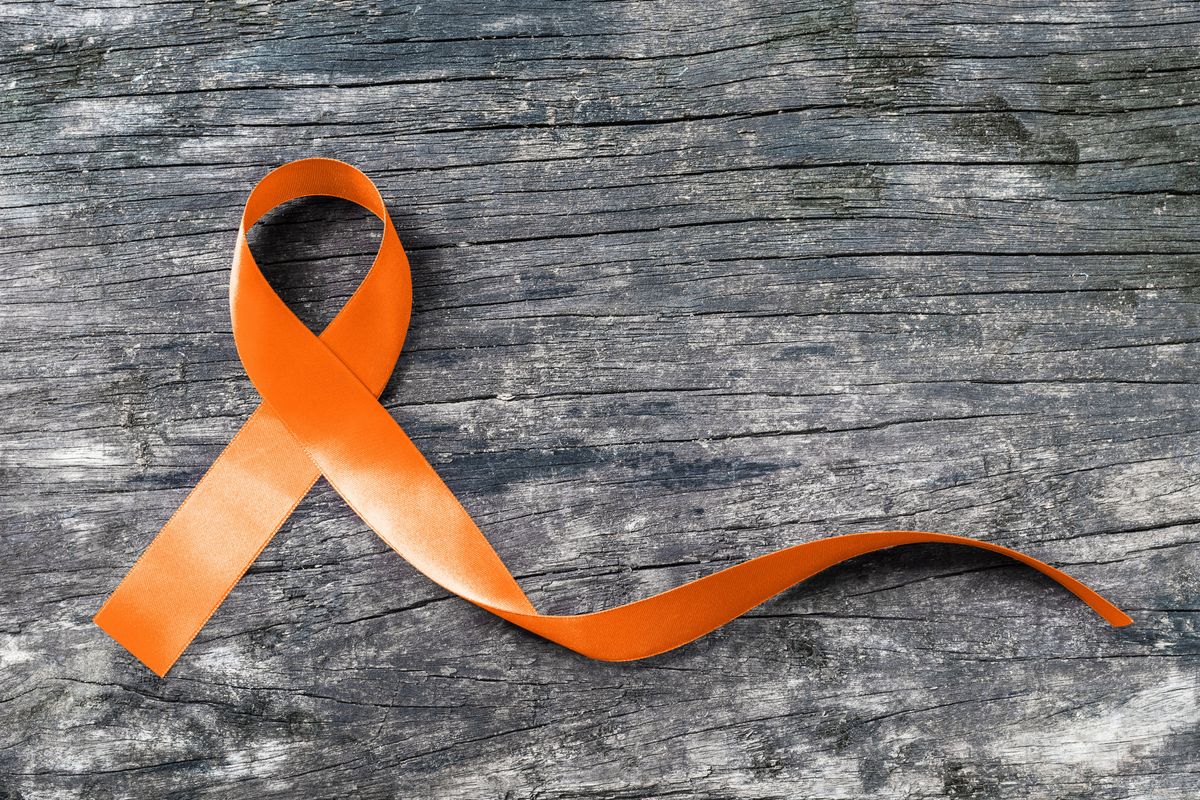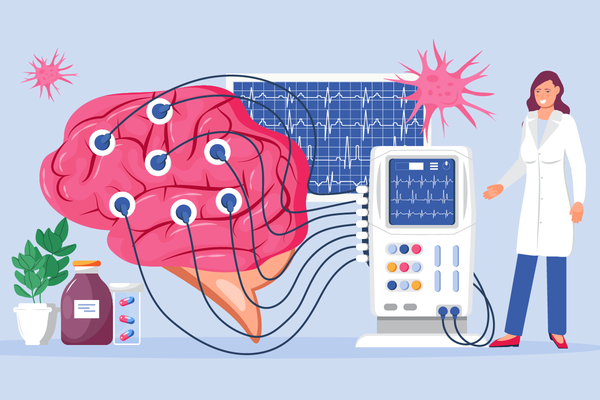Nearly 1 million people in the United States are living with multiple sclerosis, yet this complex condition isn't widely understood.
What Is Multiple Sclerosis?
Most nerve fibers in the body are covered with a protective layer called the myelin sheath. This covering insulates nerve fibers, allowing signals to move quickly and accurately along them. In multiple sclerosis (MS), parts of the myelin sheath and the nerves underneath in the brain, spinal cord and optic nerves are damaged or destroyed. This prevents the nerves from signaling properly.
While the cause of MS is unknown, it may be triggered by an autoimmune reaction where the body's immune system attacks its own tissues. This autoimmune reaction causes inflammation, which damages the myelin sheath and underlying nerves.
Women are two to three times more likely than men to be diagnosed with MS, and genetics may also play a role in the development of MS. Some research indicates that perinatal exposure to pesticides may increase a person's risk of MS. Lifestyle factors, including low vitamin D, cigarette smoking and obesity may also enhance a person's risk.
What Are the Symptoms of Multiple Sclerosis?
Symptoms of MS vary widely, depending on which nerves have been damaged by the disease. Some of the most common symptoms of MS are tingling and/or numbness, fatigue, muscle weakness, blurred and/or double vision, lack of coordination, trouble balancing, memory loss, urinary urgency, difficulty concentrating and depression. Less common symptoms that may occur with advanced MS include tremors, blindness and paralysis.
Many people with MS will alternate between periods where they're symptomatic (relapses), followed by periods without symptoms (remissions). Others will experience a gradual worsening of symptoms over time. Remissions can last years, and symptoms sometimes disappear completely.
What Are the Types of MS?
It's impossible to predict how MS will progress in a person, but it usually happens in one of four ways. Based on the course the disease follows, MS can be grouped into one of the following types:
- Clinically isolated syndrome (CIS), when a person has their first episode of symptoms suggesting the onset of MS
- Relapsing-remitting MS (RRMS), when a person cycles between remission and relapse without any worsening of the disease between relapses
- Secondary progressive MS (SPMS), a more progressive course of the disease, which sometimes follows relapsing-remitting MS
- Primary progressive MS (PPMS), where the disease progresses slowly but steadily without many (or any) relapses or remissions
Although MS is a complex condition that affects everyone a little differently, diagnosing the type of MS can help determine the best course of treatment.
Other Health Concerns for Women With MS
Unfortunately, people with MS aren't exempt from other health conditions. The occurrence of two or more chronic conditions at the same time is called comorbidity. A systematic review conducted by the International Advisory Committee on Clinical Trials in MS determined that the five most common comorbidities in people with MS were depression, anxiety, high blood pressure, high cholesterol and chronic lung disease.
Other research supports these findings, suggesting vascular problems like high blood pressure and heart disease and mood disorders like depression and anxiety often occur alongside MS. Obesity is another comorbidity that often impacts people with MS, sometimes exacerbating symptoms of the disease.
In addition to comorbidities, there are other health concerns specific to women with MS. Many women report that their MS symptoms seem to worsen around the time of their menstrual period, and the onset of menopause may also intensify symptoms of MS.
Treatment and Care Options for MS
As with so many other conditions, early detection is key to treating MS. The symptoms of MS that tend to show up first are tingling, numbness, burning and itching; weakness or loss of dexterity in a leg or hand is another early sign, as is blurred vision. Women who are experiencing any symptoms they suspect could be a sign of MS should talk to a health care provider.
Because MS can be difficult to identify, it may be necessary to see more than one provider before getting a diagnosis. Different specialists may use different diagnostic methods, including magnetic resonance imaging of the brain, cervix and thoracic spinal cord; visual evoked potential tests, spinal tap; blood tests; and optical coherence tomography.
Once MS is diagnosed, treatment usually involves medications designed to target inflammation. The sooner a woman can start treating her MS, the greater the chance she'll be able to reduce the impact on her myelin sheath and nerves.
Because symptoms of MS are so varied and manifest in different patterns, monitoring and management of these symptoms are key to successful MS care. No matter which type of MS a woman has, individualized treatment can provide support that's specific to her unique needs.
Is MS Preventable?
It's difficult to say what, if anything, can be done to prevent MS, since we don't know exactly what causes it. But certain lifestyle changes may help people with MS manage their symptoms. An integrative approach to MS treatment that includes regular exercise, a healthy diet and mental health support can complement conventional therapies.
For more information, visit HealthyWomen's hub on multiple sclerosis and the National Multiple Sclerosis Society, which has resources available to help people navigate the challenges of living with MS.
This resource was created with the support of Biogen.
- HealthyWomen’s Multiple Sclerosis (MS) Support Group Finder - HealthyWomen ›
- Multiple Sclerosis: What to Expect From Diagnosis to Treatment - HealthyWomen ›
- Beyond the Physical: How MS Affects Your Life - HealthyWomen ›
- Important Questions to Ask About Multiple Sclerosis - HealthyWomen ›
- How Multiple Sclerosis Affects the Central Nervous System - HealthyWomen ›
- Can I Prevent Multiple Sclerosis? - HealthyWomen ›
- MS and Women of Color - HealthyWomen ›
- La EM y las mujeres de color - HealthyWomen ›







